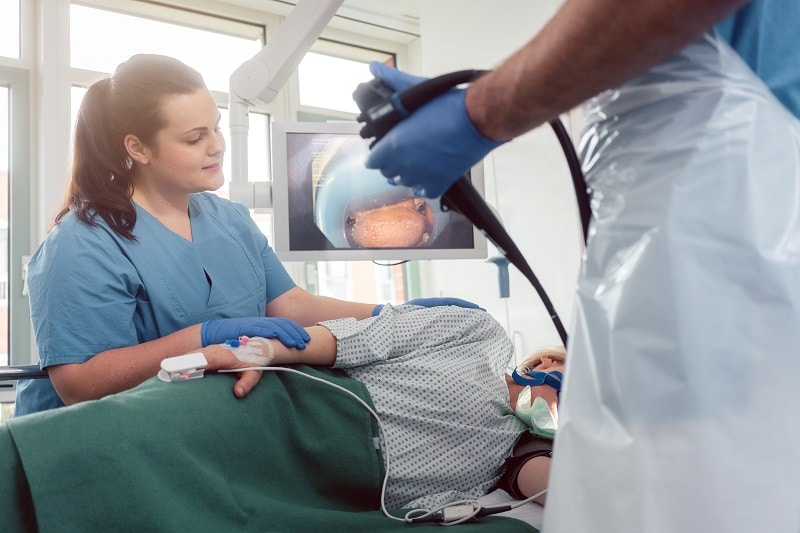Last updated on June 6th, 2023
Board exams assess your knowledge regarding the details of myriads of treatment interventions that are used to treat diverse medical conditions. You are expected to have a knowledge of the details of each of these specific treatment interventions, in addition to knowing the situations in which to give preference to one particular intervention over another. Therefore, it is important to know how much knowledge of the details regarding a particular treatment intervention you should have.
There are certain treatment interventions in every field of medicine that are administered only by a specific subset of practitioners working in that field or, alternatively, the help of other specialists is taken for the administration of these interventions. On the gastroenterology board exams, you are expected to be a general and average practitioner working in your area of specialty. Given this, how much knowledge are you expected to have regarding the treatment interventions that you are not going to administer yourself?
One touchstone to guide you in gauging the level of knowledge required is to base it on what things, regarding a particular intervention, would you be expected to know in order to get informed consent from a patient for that treatment intervention. If the treatment procedure is being recommended by you, and yet you are not going to administer the procedure by yourself, you still should have sufficient knowledge about it in order to obtain the initial informed consent from your patient. Following are the examples of the things that you should know:
- The basic concept behind the procedure. The mechanism by which the procedure would help treat the condition or establish a diagnosis. The effects of the procedure on the human body.
- The risks and benefits of the procedure.
- The alternative treatment interventions that are available, and the risks and benefits of those interventions.
- The risks and benefits of not administering any treatment at all.
Consider the following examples:
- An anesthesiologist who is not specialized in the management of anesthesia during renal transplantation should still have basic knowledge regarding the procedure.
- An internist who does not perform percutaneous coronary intervention (PCI) himself, but refers many patients to cardiologists for this procedure, is expected to know about the basic concept, indications, risks, and benefits of the procedure.
- Not all general gastroenterologists perform endoscopic retrograde cholangiopancreatography (ERCP) themselves, but they should still have a basic level of knowledge regarding the details of this procedure.
Example from Gastroenterology: What should you know about ERCP
On the gastroenterology board exams, a general gastroenterologist is expected to know the following details regarding ERCP:
- Indications for ERCP:
- Diagnostic indications: ERCP may be indicated in obstructive jaundice, which may be due to gallstones, common bile duct stones (CBD), biliary stenosis, pancreatic stenosis, indeterminate biliary strictures, injury to bile ducts, and sphincter of Oddi dysfunction.
- Therapeutic indications: It may be indicated in the above mentioned diagnostic scenarios if endoscopic sphincterotomy, bile duct stenting, stone removal, or dilation of strictures is required.
- Main concepts of ERCP:
- It is an advanced endoscopic technique that combines endoscopy and fluoroscopy for the diagnosis, as well as treatment, of certain diseases of the pancreatic or biliary ductal systems.
- The patient is either sedated or anesthetized for the procedure.
- In order to perform the procedure, the duodenoscope is passed through the mouth, down the esophagus and the stomach, and is then inserted into the second portion of the duodenum.
- Selective cannulation of the pancreatic or biliary duct is performed through the papilla.
- Radiocontrast dye is injected, and fluoroscopy is used to find stones, blockages, etc.
- If needed, therapeutic procedures such as sphincterotomy, balloon dilatation, bile duct stone removal, or stent insertion can be performed.
- Contraindications:
- Unstable neurologic, cardiopulmonary, or cardiovascular status
- Existing bowel perforation
- Patient refuses to undergo the procedure
- Hypersensitivity toward the iodinated radiocontrast medium
- Structural abnormalities of the small intestine, stomach, or the esophagus
- Lack of evidence of pancreatic or biliary disease
- Availability of safer diagnostic tools
- Potential complications:
- Post-ERCP pancreatitis; it is the most common complication of ERCP and may occur in about 1-7% of patients
- Duodenal and biliary perforations
- Gastrointestinal bleeding
- Infections, such as cholecystitis and cholangitis
This may seem to be an extensive list of things to remember regarding ERCP. However, if you are a gastroenterologist who performs ERCP on a regular basis, you would know a lot more about it, as is exemplified by the list given below. This information, however, would not be required for a general gastroenterology board exam.
- When the duodenoscope is inserted into the esophagus during ERCP, the vocal cords are located obliquely upward of the visual field, not at the front of the field.
- Successful insertion of the catheter into the pancreatic or biliary duct through the papilla is a basic step in ERCP. With a normal papilla, the endoscopic view shows the bile duct in the 11 o’clock direction, whereas, the 1 o’clock to the 5 o’clock direction shows the pancreatic duct.
- During ERCP, sphincterotomy is usually performed, with the help of a pull-type sphincterotome, after the insertion of the guidewire into the bile duct.
Source:
Kim J. Training in Endoscopy: Endoscopic Retrograde Cholangiopancreatography. Clin Endosc. 2017;50(4):334-339.
All of your Gastroenterology Board Exam prep needs can be met by The Pass Machine!


Thanks for explaining that not all gastroenterologists perform ERCP. My dad has been having a lot of problems with his stomach and colon lately. he was told he’d need an ERCP so I’ll make sure he finds a gastroenterologist who knows how to do it.